Water Blasting Cleaning Machines
Product Details:
- Usage Industrial
- Size Standard
- Product Type Industrial High Pressure Water Blasting Cleaning Machines
- Application Stone, Ore, Mining, Chemical Industry
- Color Blue
- Power 150 Horsepower (HP)
- Voltage 220 Volt (v)
- Click to View more
Water Blasting Cleaning Machines Price And Quantity
- 1000000 INR/Set
- 1 Set
Water Blasting Cleaning Machines Product Specifications
- Standard
- Blue
- Industrial
- Industrial High Pressure Water Blasting Cleaning Machines
- 150 Horsepower (HP)
- Stone, Ore, Mining, Chemical Industry
- 220 Volt (v)
Water Blasting Cleaning Machines Trade Information
- All over India, Mumbai, Mundra, Pipavav, Kandla
- Cheque, Letter of Credit (L/C), Telegraphic Transfer (T/T), Western Union, Paypal
- 25 Set Per Month
- 5 Week
- Yes
- Contact us for information regarding our sample policy
- Wooden boxes with bubble plastic wrapping, Export packaging, As per client demand.
- Himachal Pradesh, Meghalaya, Nagaland, Uttarakhand, Daman and Diu, Dadra and Nagar Haveli, Lakshadweep, South India, North India, East India, West India, Andaman and Nicobar Islands, Andhra Pradesh, Assam, Arunachal Pradesh, Bihar, Chandigarh, Delhi, Gujarat, Goa, Haryana, Jammu and Kashmir, Jharkhand, Karnataka, Madhya Pradesh, Maharashtra, Mizoram, Manipur, Punjab, Pondicherry, Rajasthan, Sikkim, Tamil Nadu, Telangana, Tripura, Uttar Pradesh, West Bengal, Kerala, Central India, Odisha, Chhattisgarh, All India
- MSME, IEC
Product Description
Water blasting cleaning machine is a technique for cleaning internal and external surfaces, which relies entirely on the sheer force of water from a pressurized source to achieve the desired cleaning effect on the intended surface. Abrasives, toxic and potentially harmful chemicals are not used in water blast cleaning systems.
Water Blasting Cleaning Machine Specifications:
- Pressure Range - 350 Bar to 1400 Bar
- Flow Range - 15 LPM to 139 LPM
Features Of Water Blasting Cleaning Machine:
- Robust Construction
- Few Moving Parts
- Low and Easy Maintenance
- Simple and Comfortable Design
- Easy Installation
- Volumetric Efficiency 95% (maximum)
- Independent alloy steel high wear resistance cylinder
- Compulsory lubrication system
- Plunger core automatic regulate device
- Super-hard alloy or ceramic plunger
- All-in-one transmission case
- Equipped with protection unit for phase failure and over charge
- Intake pressure and lubricant pressure warning device
Applications Of Water Blasting Cleaning Machine:
- High Pressure Cleaning
- Tank & Vessel Cleaning
- Hydro Blasting
- Hydro demolition
- Paint Removal
- Ship Hull Cleaning
- Heat Exchanger-Condenser-Boiler-Evaporator Tube & Surface Cleaning
- Surface Preparation
- Textile Industrial Work for Humidification
- Clean and test pressure of petrol pipeline, chemical container, reaction kettle, and heat exchanger by salt work
- Pharmaceutical factory and concrete removal and roughening
- Remove sand, oil, rust, colloid, paint and dirty stuff of castings
- Remove bread crust in rotary kiln of cement plant
FAQ:
Q. What is a water blasting cleaning machine?
Ans: A water blasting cleaning machine, commonly known as a pressure washer, is a device that uses high-pressure water to remove dirt, grime, and other contaminants from surfaces.
Q. What are the common uses for water blasting cleaning machines?
Ans: Pressure washers are used for a wide range of cleaning tasks, including cleaning vehicles, decks, patios, sidewalks, buildings, driveways, and more. They are also used in industrial settings for tasks like paint removal, graffiti cleaning, and equipment cleaning.
Q. How do pressure washers work?
Ans: Pressure washers use a motor or engine to pressurize water, which is then forced through a hose and a nozzle at a high pressure. This high-pressure stream of water is used to clean surfaces by dislodging dirt and debris.
Q. What types of pressure washers are available?
Ans: There are typically three types of pressure washers: electric, gas-powered, and diesel-powered. Electric pressure washers are more suitable for home use, while gas and diesel-powered ones are more powerful and often used for industrial or professional applications.
Q. What is the difference between PSI and GPM in pressure washer specifications?
Ans: PSI (pounds per square inch) measures the water pressure, indicating the force with which water is sprayed. GPM (gallons per minute) measures the water flow rate. Together, they determine the cleaning power of a pressure washer.
Q. Are there different nozzle types for pressure washers?
Ans: Yes, pressure washers typically come with a variety of nozzles or tips that can be used to adjust the spray pattern. These nozzles range from a narrow, high-pressure stream to a wide, low-pressure fan pattern for different cleaning tasks.
Q. What safety precautions should I take when using a pressure washer?
Ans: Safety is essential when using pressure washers. Always wear protective gear, including safety glasses and hearing protection. Be cautious around electrical outlets and connections. Avoid pointing the nozzle at people or animals, and be aware of kickback from the spray.
Q. Can I use any type of water in a pressure washer?
Ans: Its best to use clean, fresh water. If you need to use water from a non-potable source, make sure the pressure washer is designed to handle it. Some models have filters to prevent debris from clogging the system.
Q. How should I maintain my pressure washer?
Ans: Regular maintenance includes cleaning the machine after use, checking for leaks, and ensuring all connections are secure. Additionally, change the oil (if applicable) and perform other routine maintenance tasks as recommended in the user manual.
Q. Can I use a pressure washer on all surfaces?
Ans: Pressure washers can damage delicate surfaces like wood or paint if not used correctly. Adjust the pressure and nozzle type according to the surface you are cleaning. Always consult the user manual and exercise caution.
Q. What is the cost range for pressure washers?
Ans: The cost of a pressure washer can vary significantly depending on the type, brand, and features. Basic electric models can start at around $100, while heavy-duty gas-powered models can cost several hundred dollars or more.
Q. Can I use a pressure washer to remove oil stains from a driveway?
Ans: Yes, pressure washers are effective at removing oil stains from driveways. You may need a specific detergent or cleaner designed for oil stain removal in conjunction with the pressure washer for the best results.
Q. Can I rent a pressure washer instead of buying one?
Ans: Yes, you can often rent pressure washers from hardware stores or equipment rental companies for one-time or occasional use. This can be a cost-effective option if you dont need a pressure washer frequently.
Advanced Industrial Cleaning Solution
Experience enhanced productivity with our water blasting cleaning machines, tailored for demanding tasks across mining, chemical processing, and ore or stone industries. With powerful 150 HP motors and durable construction, these machines ensure thorough cleaning and efficient maintenance, reducing downtime and preserving equipment longevity.
Reliable Performance and Versatility
Our water blasting cleaning machines are suitable for a broad spectrum of industrial environments. They are equipped to handle rigorous cleaning tasks quickly and effectively. The standard blue design and compatibility with 220-volt power supply offer reliability and ease of operation for operators across various sectors.

Price:
- 50
- 100
- 200
- 250
- 500
- 1000+

 English
English Spanish
Spanish French
French German
German Italian
Italian Chinese (Simplified)
Chinese (Simplified) Japanese
Japanese Korean
Korean Arabic
Arabic Portuguese
Portuguese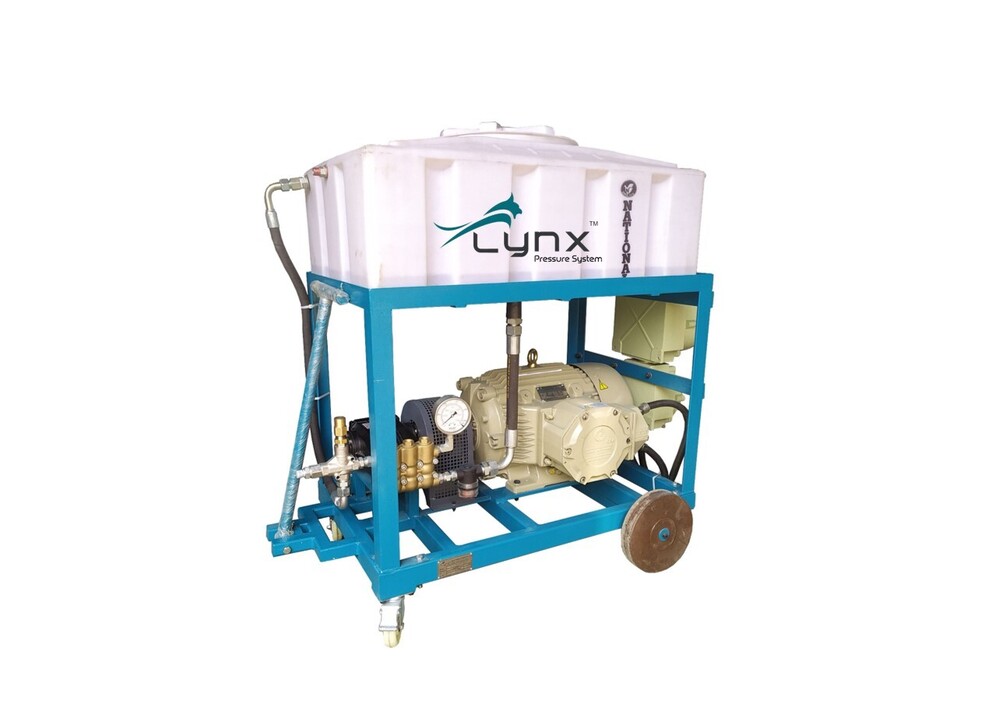






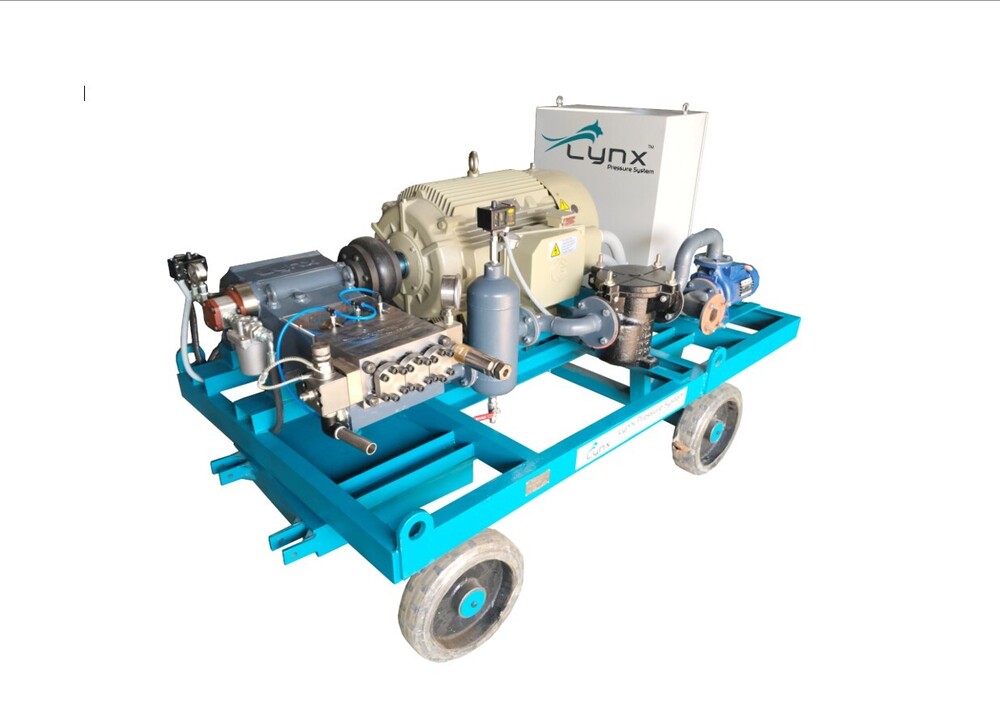

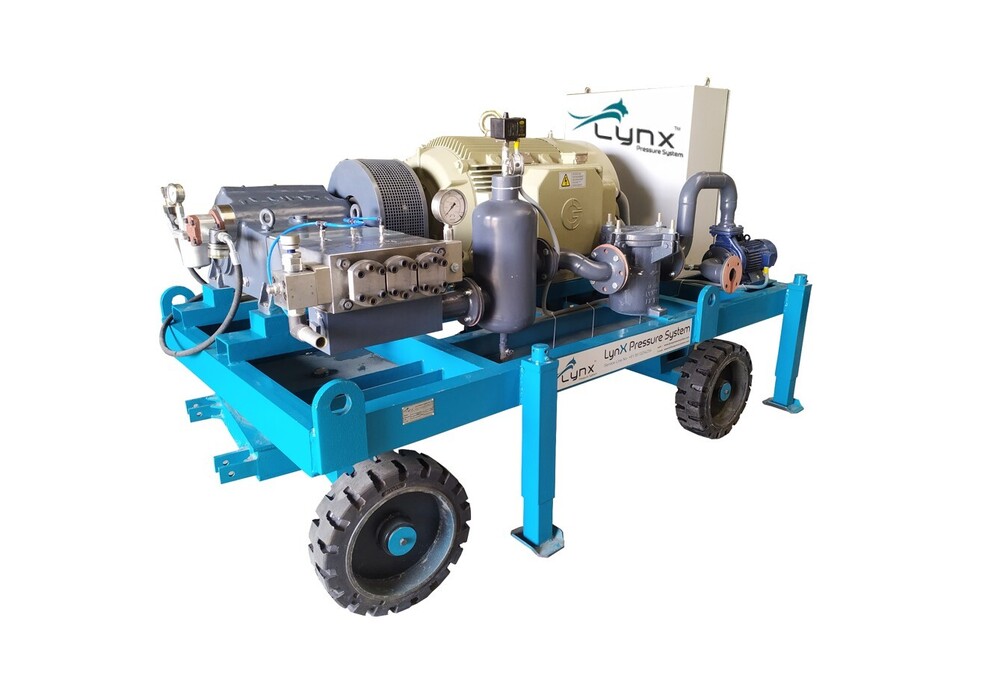
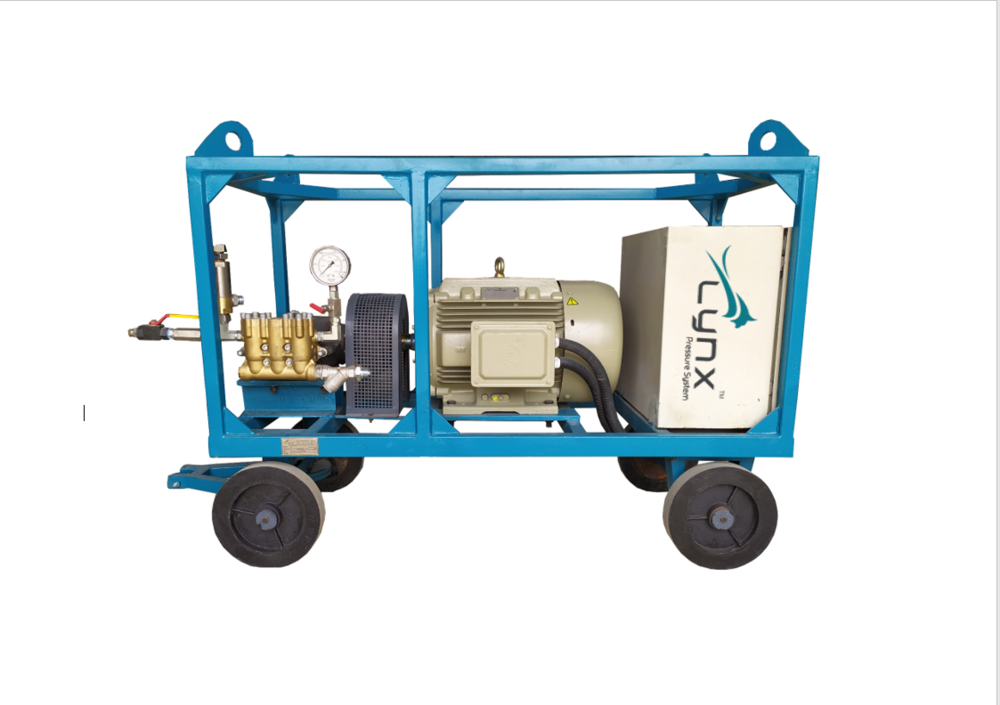

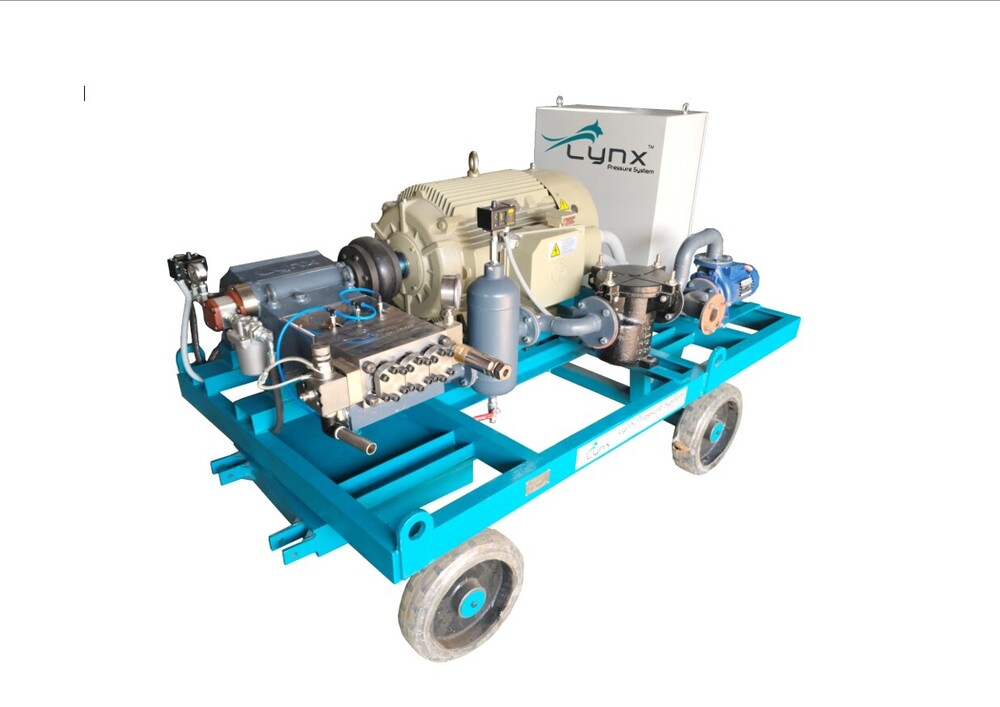
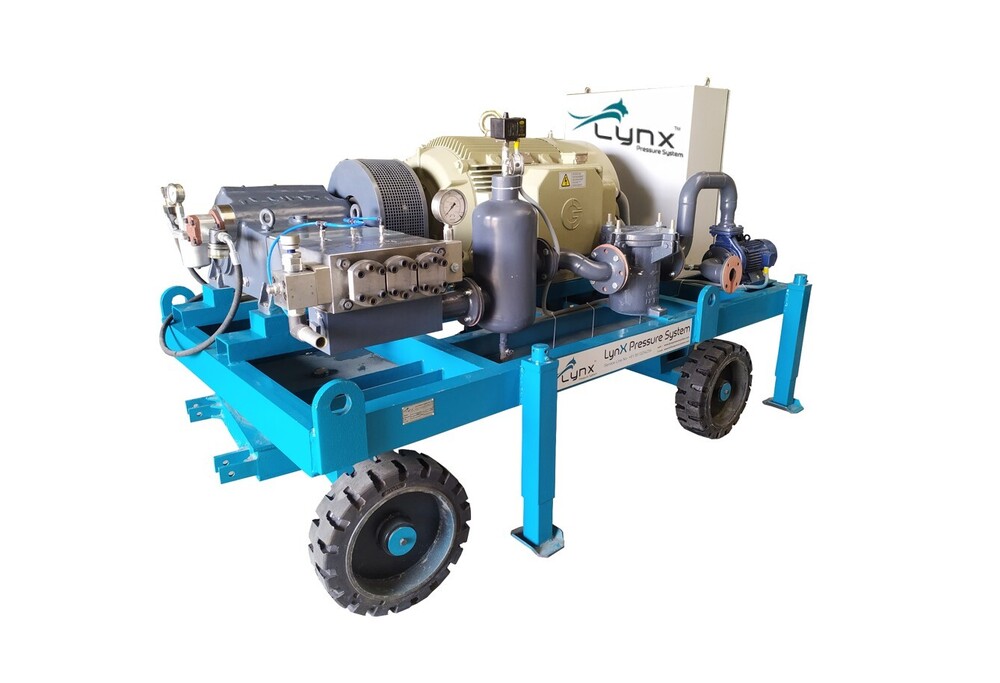
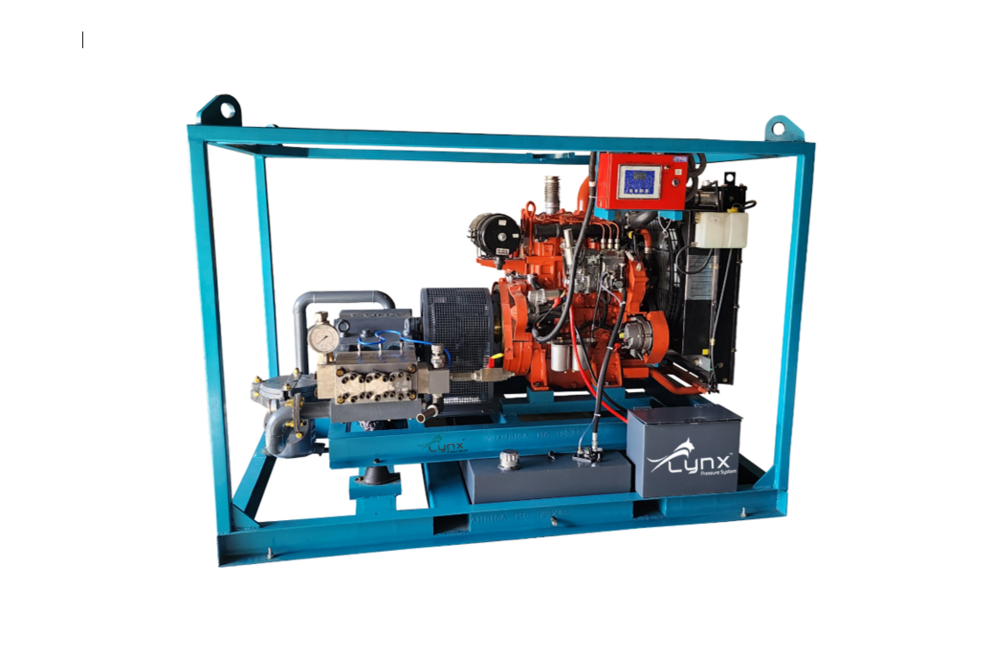
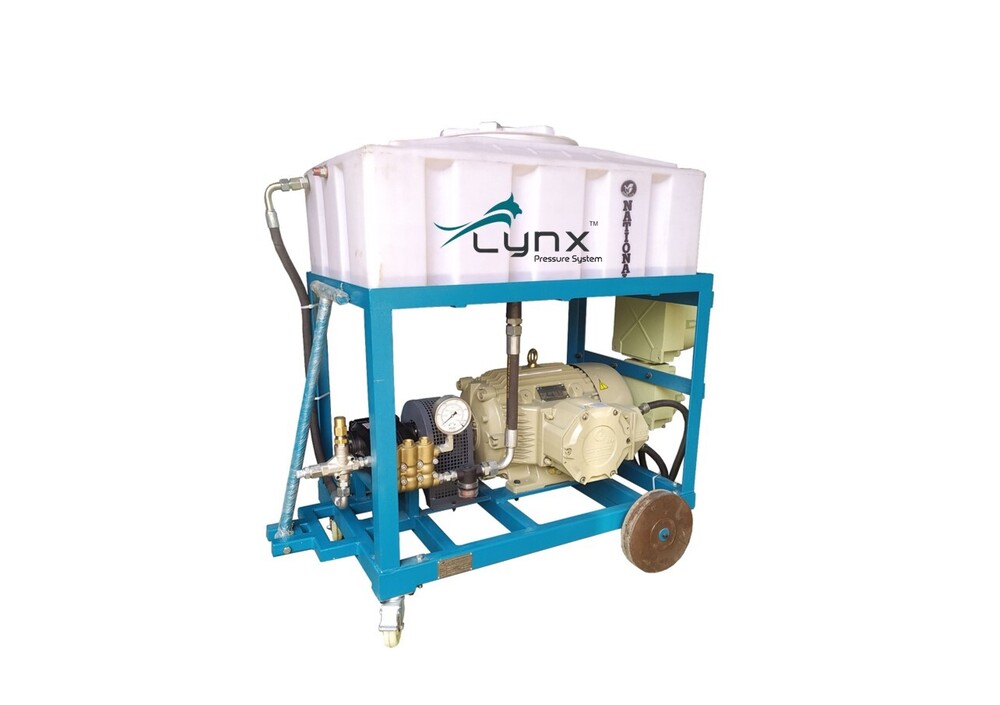
 Call Me Free
Call Me Free
